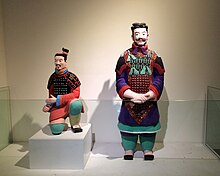Buy fake followers, a growing practice
Fame and popularity have always attracted, especially today, that new online platforms allow any individual today to reach celebrity and become an "influencer" on Twitter, Facebook, Instagram or YouTube.
But as social networks have grown in popularity, a new phenomenon has also é n growing hand in hand: the falsification of popularity on the Internet. This phenomenon is known as "astroturfing" and it is just about any shortcut by which we pretend to be more popular than we really are, falsifying followers or interactions.
This is possible because any type of online activity on digital platforms can be falsified: followers, fans and subscribers, retweets and likes, even video reproductions. Expert programmers in hacking techniques discover the vulnerabilities of each platform and create these automated services.
Fashion has gone from social network to social network. Initially, the most demanded platform was Facebook, then Twitter and currently the most requested services are those of Instagram. There are websites such as Instagram followers buy, where they can be purchased in quantity, at just $ 17 USD for 1,500 fake followers.

The possibility of acquiring followers is attractive both for young people who want to be popular and for publicists and professionals in very competitive activities such as TV and politics. Even public personalities who seem not to need it to incur in buying followers to stay in force.
Although this practice may seem frivolous, its use by governments and public officials has also been increasing and, in turn, concern about how it affects the exercise of democracy. The falsification of popularity can be understood as a falsification of public opinion, and there are already cases of governments around the world using social networks to support ideas or people or to disappoint opponents or critics.
This is shown by Freedom on the Net, the most recent report by Freedom House, an NGO dedicated to the expansion of freedom of expression and democracy. Freedom House analyzed 65 countries and found that in 30 of them astroturfing techniques were used to distort online information in the form of commentators, trolls, bots, and fake news websites. 23 countries more than last year.
The Internet is becoming the medium of information and communication most used by a large part of the population, so it is not surprising that today more than ever ideological debates and consensus searches are defined in social networks. However, some apparently play dirty.





 A figure with a '目'-shaped face
A figure with a '目'-shaped face The different hairstyles of the Terracotta Warriors
The different hairstyles of the Terracotta Warriors A cavalryman
A cavalryman







